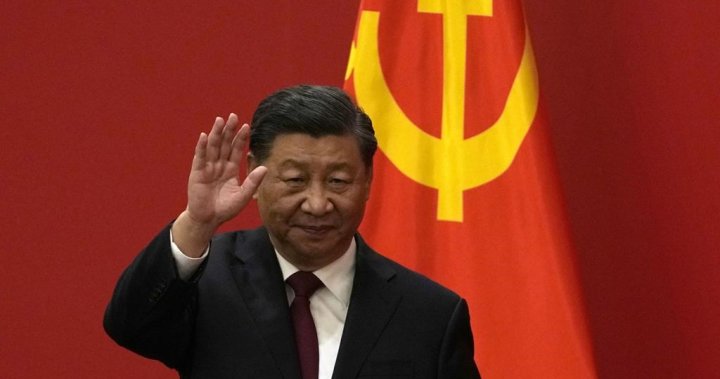Canadian authorities have issued a deportation order against a Chinese woman on the grounds she was part of Beijing’s foreign interference program.
The Immigration and Refugee Board ruled that Jing Zhang had worked for the Overseas Chinese Affairs Office (OCAO), which it said conducts espionage in Canada.
While immigration officials did not argue that Zhang committed espionage, the Refugee Board found that as an 11-year OCAO employee, she had contributed to its efforts to pressure the Chinese diaspora.
According to the 32-page decision, the Peoples Republic of China (PRC) uses the OCAO to silence dissent overseas.
The organization “was and remains involved in espionage against the PRC‘s targeted individuals and groups in Canada,” the IRB added.
“The OCAO conducting espionage, surveillance or covert monitoring of Chinese and ethnic Chinese dissidents or minorities in Canada is against Canada, and contrary to its security interests.”
The decision to deport Zhang for security reasons was handed down on Aug. 28 but only recently released publicly.
The Vancouver lawyer who represented Zhang could not be reached for comment.
The Canada Border Services Agency did not respond by deadline when asked whether Zhang had been deported since the ruling was issued six months ago.
An inquiry was scheduled to begin in Ottawa on Monday into foreign interference in Canada’s 2019 and 2021 federal elections.
Get the latest National news.
Sent to your email, every day.
The commission was sparked by allegations of widespread meddling by China, but also has a mandate to examine the actions of Russia and “other foreign states or non-state actors.”
But elections are only part of a broader national security threat: the bullying of Canadians by overseas governments, particularly China.
Activists targeted by Beijing have faced harassment, intimidation and extortion, and their extended families in China have been threatened.
The OCAO is one of several groups the Communist Party has tasked to eliminate “potential threats and rival discourses” that challenge the Chinese Communist Party’s hold on power.
“The evidence establishes that a key role of the OCAO has been intelligence gathering on dissidents and ethnic minorities external to China,” the IRB wrote.
During Zhang’s hearing, the CBSA argued the OCAO had infiltrated Chinese communities in Canada to suppress opponents, among them Taiwanese, ethnic Uyghurs, Falun Gong practitioners and Canadian citizens of Chinese descent.
The OCAO has “engaged in covert action and intelligence against them, manipulating them,” the immigration enforcement agency alleged.
Its aim is “managing the overseas Chinese community’s behaviour” through incentives, disincentives and surveillance, which amounts to espionage, according to the CBSA.
From 2008 to 2019, Zhang was employed by the OCAO in Yangzhou, first as director of public relations, and later as director of overseas liaison, the IRB said.
She travelled abroad on business up to four times a year, and engaged with “target groups” both inside China and in the diaspora, the ruling said.
“Her target populations included students, prominent individuals, government personnel and groups, and business persons,” it added.
“Her activities and target populations demonstrate that she was fulfilling the objectives of the OCAO and its implementation of qiaouw.”
Qiaouw is a Marxist-Leninist tactic that exploits person-to-person relationships to neutralize critics of the Communist Party, according to the IRB.
Zhang, who has a law degree, downplayed her role in the OCAO, blamed translation errors and argued Canada had given her multiple visas in the past without any problems.
She denied being a member of OCAO but the IRB ruled she was, and had knowingly participated in its activities and supported its goals.
The hearings were held virtually from Vancouver.
Another former OCAO employee, Yong Zhang, was deemed inadmissible to Canada in 2022 based on a similar finding.
In 2018, OCAO became part of China’s United Front Work Department, which federal officials allege has been operating in Canada.
The Communist Party uses the UFWD to “to stifle criticism and manipulate Canadian communities,” according to the Canadian Security Intelligence Service.
The RCMP has also been investigating so-called police stations that Chinese authorities allegedly set up in Vancouver, Toronto and Montreal to conduct their operations.
Stewart.Bell@globalnews.ca
© 2024 Global News, a division of Corus Entertainment Inc.


